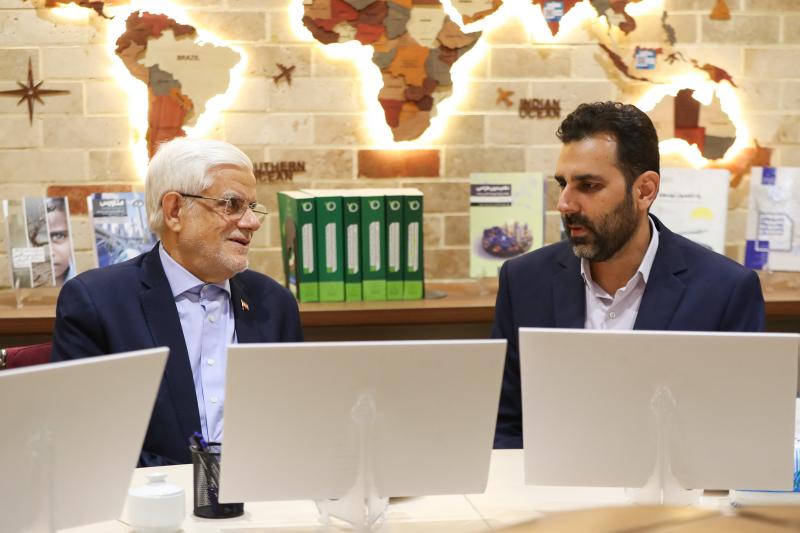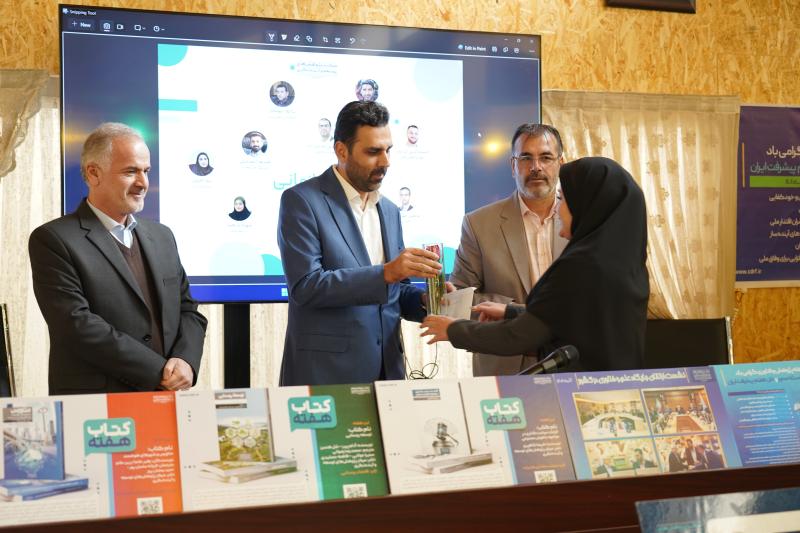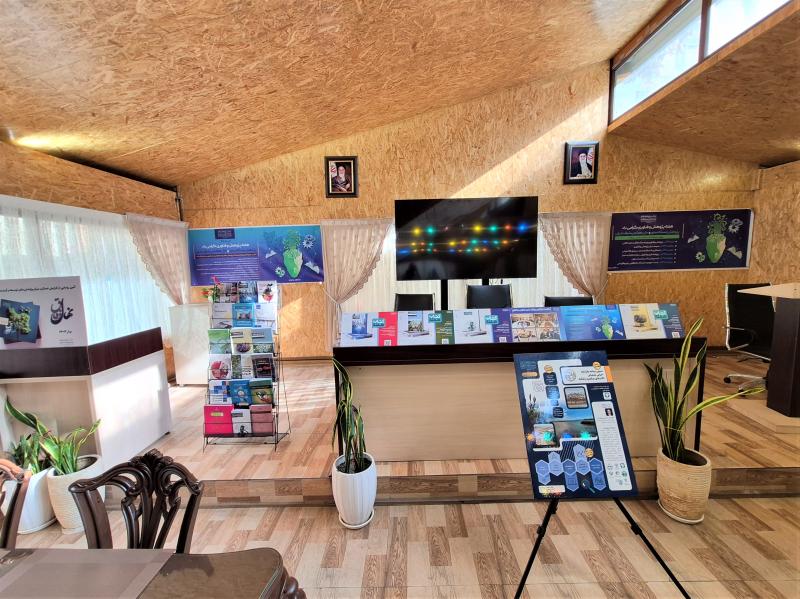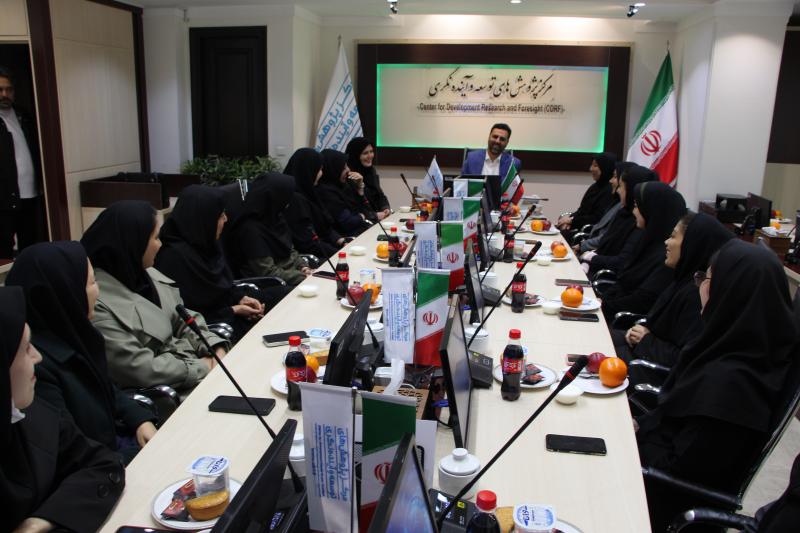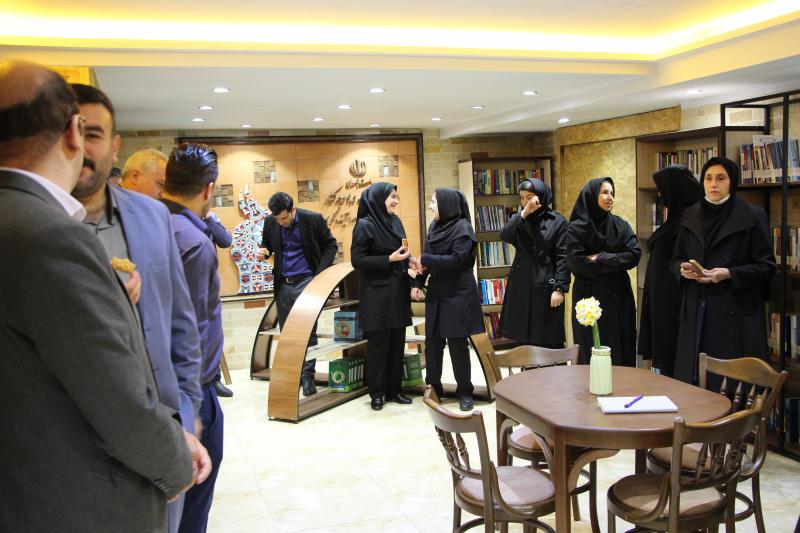
-
بررسی آییننامهها و دستورالعملهای برنامه هفتم پیشرفت
-
بررسی عوامل موثر بر افزایش تصادفات و تلفات جادهای و سوانح رانندگی و دادهکاوی تلفات انسانی
-
سازماندهی و بازآرایی فضایی آموزش عالی کشور
-
به روز رسانی سند ملی آمایش سرزمین
-
انجام مطالعات مناطق آزاد به عنوان نواحی پیشران اقتصادی کشور
-
اصلاح ساختار بودجه و پیاده سازی نظام یکپارچه مدیریت اطلاعات مالی دولت (IFMIS)
کلید واژه : Production
تعداد اخبار : 43
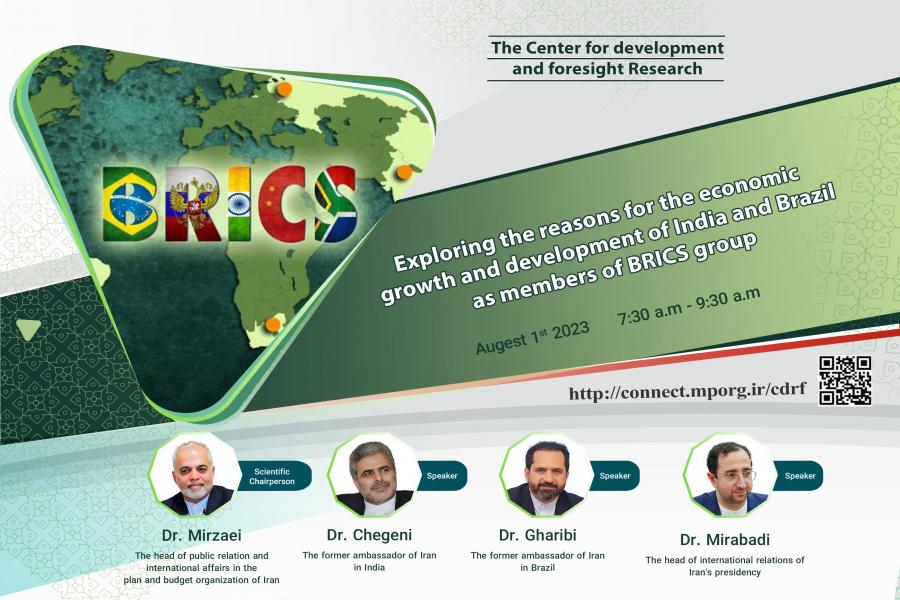
The private sector is the driving force of the BRICS countries’ economic development
The specialized conference of “Exploring the reasons for the success of the development plans of the BRICS countries; with a focus on Brazil and India” was held. It was stated that the private sector is considered as the driving force of economic development in Brazil and India. Also, it was mentioned that utilizing the economic development experience of Brazil and India would be a pivotal factor for the development of Iran’s economy.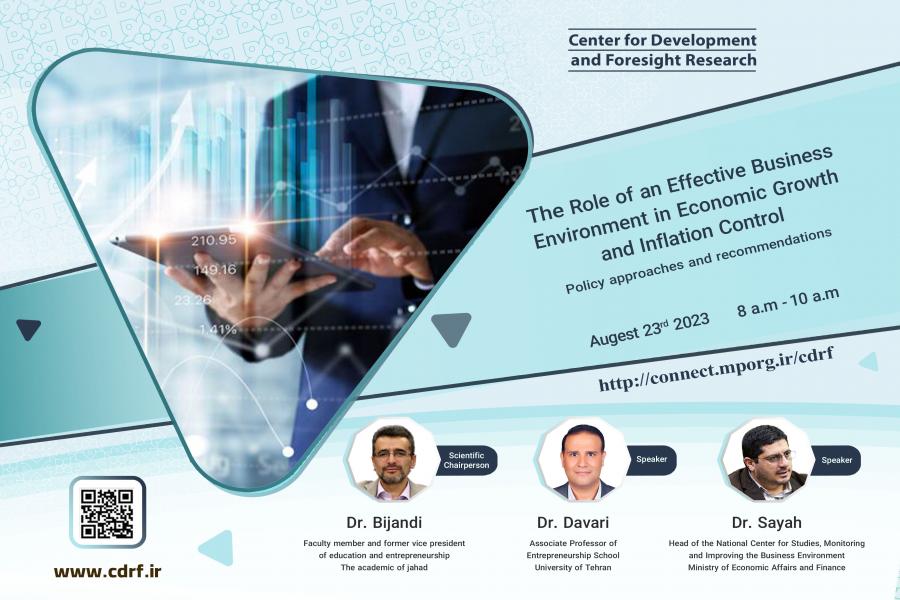
The Role of an Effective Business Environment in Economic Growth and Inflation Control: Approaches and Policy Recommendations
The specialized conference titled “The Role of an Effective Business Environment in Economic Growth and Inflation Control: Approaches and Policy Recommendations” was recently held. The conference was attended by several notable figures, including Dr. Mohammad Sadegh Bijandi, a former member of the academic board and deputy of education and entrepreneurship of the Academic Center for Education, Culture, and Research, who served as the scientific director. Other attendees included Dr. Ali Davari, an associate professor of entrepreneurship at the University of Tehran, and Dr. Amir Sayyah, the head of the National Center for Business Environment Studies, Monitoring, and Improvement of the Ministry of Economic Affairs and Finance, who both served as scientific speakers. The conference aimed to discuss approaches and policy recommendations for creating an effective business environment to promote economic growth and control inflation..jpg)
Mass housing is the public demand from the government.
The scientific-specialized meeting entitled "Strategies for addressing the Housing Supply Crisis" was held with the presence of Mr. Rouhollah Akbari, Special Assistant to the Minister and Secretary of the Committee of Housing of the Ministry of Roads and Urban Development, as the scientific director, Dr. Mohammad Hossein Sharifzadegan, Professor at Shahid Beheshti University and former Minister of Welfare and Social Security, and Dr. Abolfazl Norouzi, Advisor to the Minister and Director General of the Housing Economy Office of the Ministry of Roads and Urban Development, as speakers.
Iran’s Golden Opportunity: Exploring New Commercial Markets in Africa
In the conference of “The Role of International Relations in Controlling Inflation and Production Growth”, it is stated that the main economic goals at the Ministry of Foreign Affairs are fostering currency inflow and boosting employment growth. The embassies have a special mission to support and market the products of 640 domestic knowledge-based companies. Special attention is given to Iran's business opportunities with neighboring countries, Latin America, Southeast Asia, and especially Africa as a priority of the Ministry of Foreign Affairs in the thirteenth government. There is a high demand for Iran's medical and pharmaceutical products in Latin America..jpg)
Agricultural Sector Achieves Significant Growth, but Challenges Remain
The scientific conference titled "The Role of Balancing Production and Consumption of Agricultural Products in Controlling Inflation" underscored the significance of food security and self-sufficiency. It emphasized the urgency to augment investment in the agricultural sector and the imperative to establish a comprehensive production chain for agricultural products.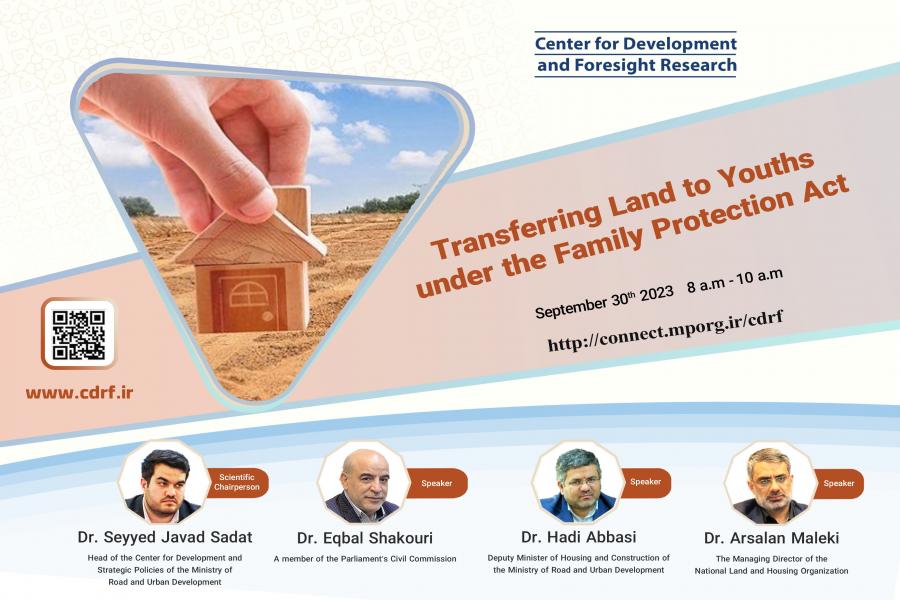
Transferring lands to youths under the Family Protection Act is a positive step in the right direction.
The conference of "Transferring Lands to Youths under the Family Protection Act: Challenges and Policy Recommendations" was held by the participation of notable figures. It is stated that the government is committed to supporting the family and youth population, and the land transfer program is a positive step in the right direction. Also, it is pointed out that it is important to ensure that the program is implemented effectively and efficiently, and that all eligible households are able to benefit from it.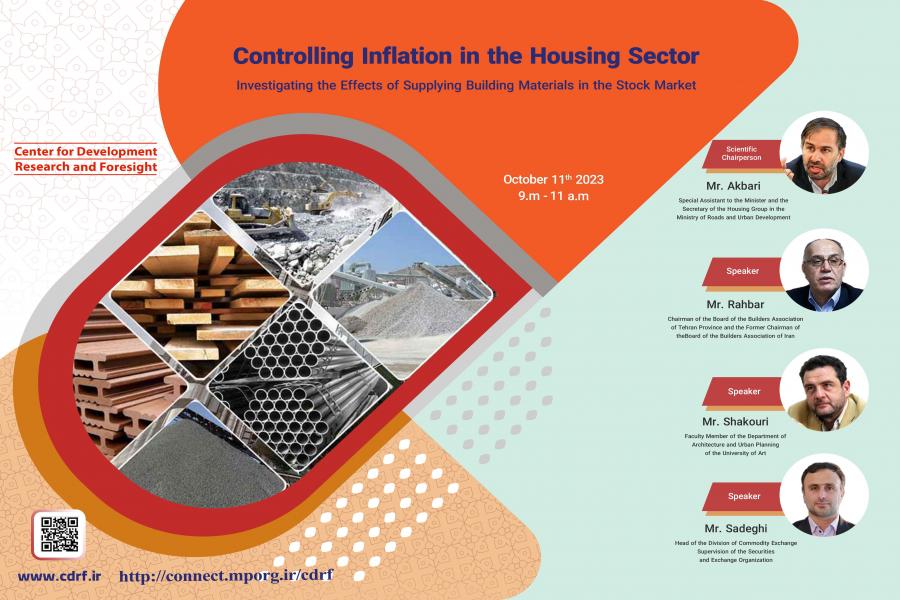
Supplying Building Materials in the Stock Market is a Matter with Controversial Perspectives.
The Center for Development and Foresight Research recently organized a specialized conference focused on addressing inflation in the housing sector, specifically examining the effects of supplying building materials in the stock market. The conference was led by Mr. Rouhollah Akbari, a special assistant to the Minister and the secretary of the housing group in the Ministry of Roads and Urban Development. Various experts from academia and industry presented their perspectives so that a comprehensive outlook can be provided to all interested in this topic..jpg)
CDRF Conference Discusses Planning-oriented Governance for Water, Food, and Farmer's Livelihood Security
The Center for Development Research and Foresight (CDRF) held a conference on planning-oriented governance for water, food, and farmer's livelihood security. The conference speakers discussed the importance of agriculture in land use planning, the three pillars of food security, and global challenges to food security. They also defined land use planning and food sovereignty, and emphasized the importance of sustainable farming practices. The CDRF conference highlighted the critical role of agriculture and food security in land use planning. The speakers discussed the challenges to food security and the need for sustainable farming practices. They also emphasized the importance of empowering producers and consumers with control over the production, distribution, and consumption of food.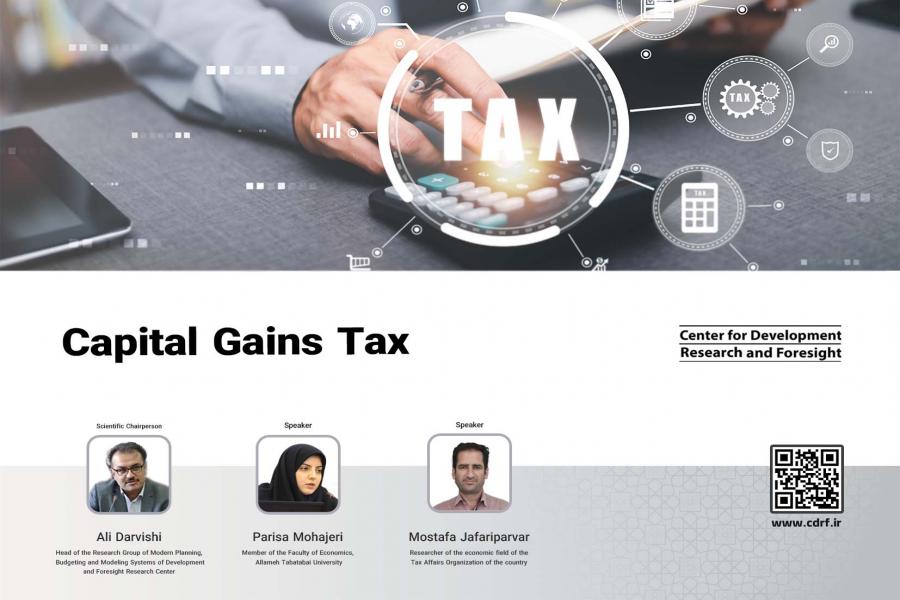
Capital Gains Tax in Iran
Iran’s 2022 budget projects tax collection to make up over 80% of the expected revenues, leading to a negative operational balance due to high government expenses. To address this, the government plans to increase tax revenues by identifying new tax bases and implementing a capital gains tax plan. However, concerns exist about the efficiency of the current tax system and the social impact of the capital gains tax law. 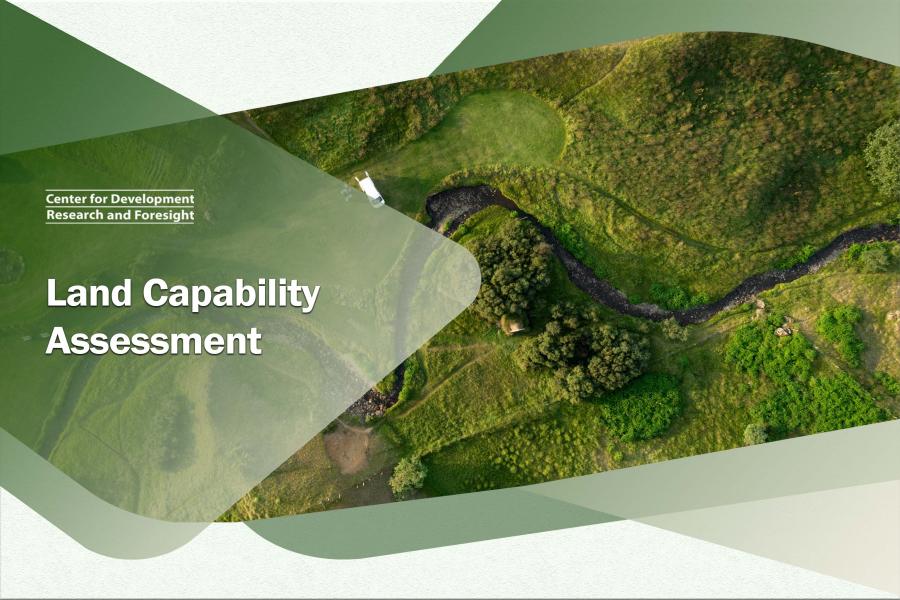
Land Capability Assessment
Environmental management is a crucial response to the crisis caused by rapid economic and social changes that affect the environment. Some of these challenges are global pollution, biodiversity loss, soil erosion, and urban sprawl. However, the pace of environmental monitoring, analysis, and planning has lagged behind the emergence of these problems.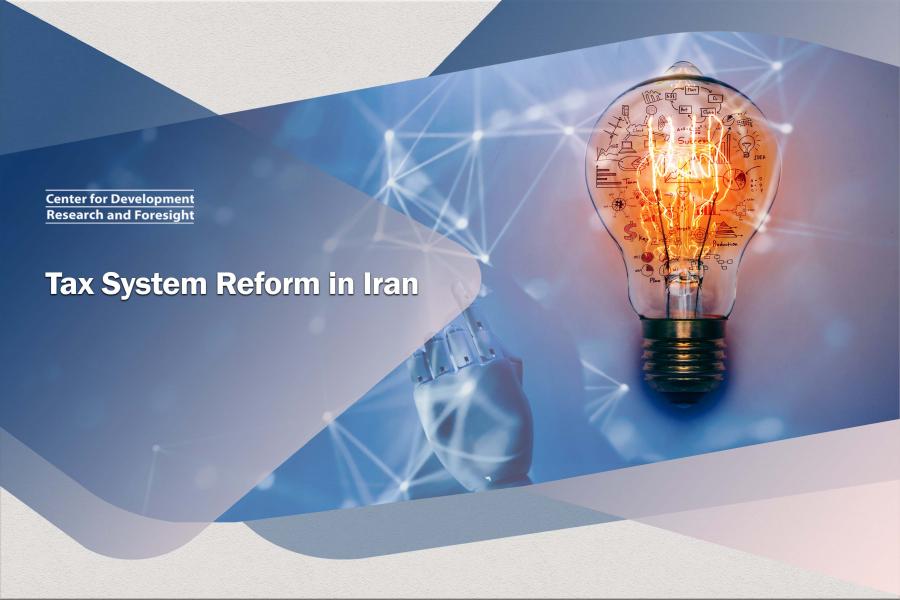
Tax System Reform in Iran
One of the most formidable challenges encountered by taxpayers within the Value Added Tax (VAT) system is the delay in VAT refunds. This delay disrupts the tax credit mechanism, transforming the consumption tax into a production or export tax.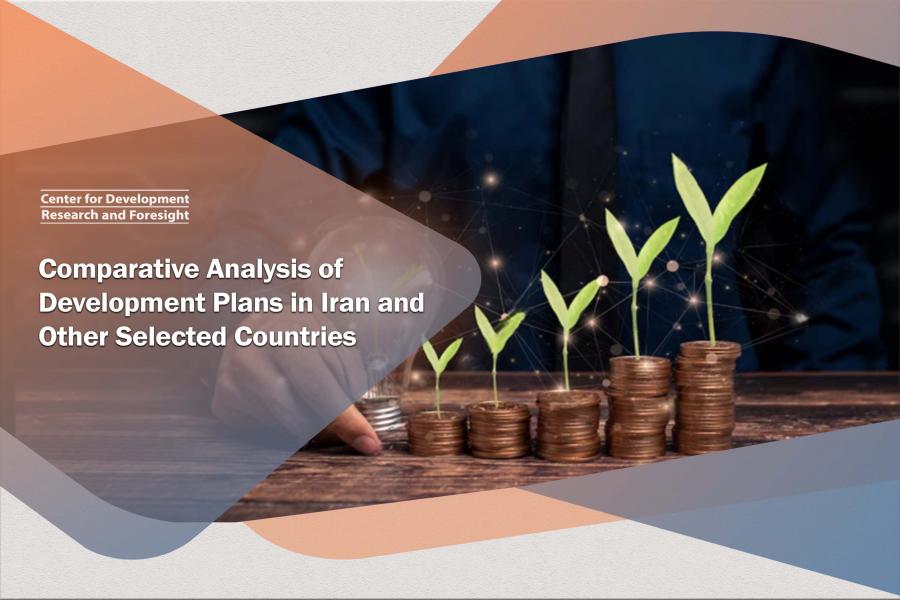
Comparative Analysis of Development Plans in Iran and Other Countries
The concept of development has been greatly influenced by the need for reconstruction and prosperity in countries involved in World War II, as well as the modernization and progress of other countries. However, development is not just about economic growth. It also includes improving income distribution, reducing poverty, expanding production capacities, and providing education, healthcare, and communication services. In essence, development aims to improve the overall quality of life and covers various aspects.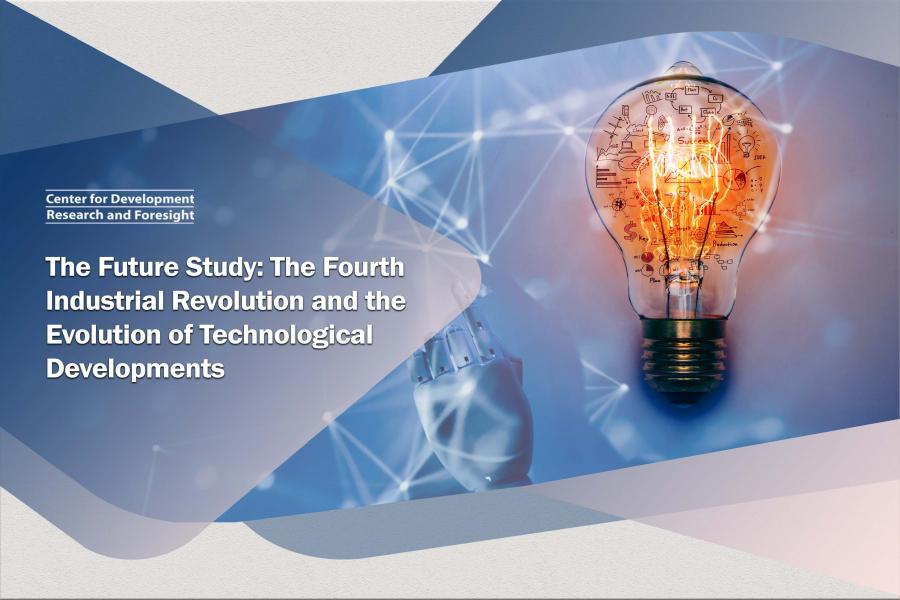
The Future Study: The Fourth Industrial Revolution and the Evolution of Technological Developments
This research delves into the concept of the fourth industrial revolution, exploring its dimensions and multifaceted impacts across various domains. It examines the profound influence of technological advancements on the future of transportation, employment, and production while investigating the intricate relationship between technological developments and the water challenge. Additionally, it delves into the impact of technological advancements on agriculture and presents a comprehensive overview of the current state of the country's science, innovation, and technology sector. A thorough analysis of the country's strengths, weaknesses, opportunities, and threats in relation to technological developments is also provided.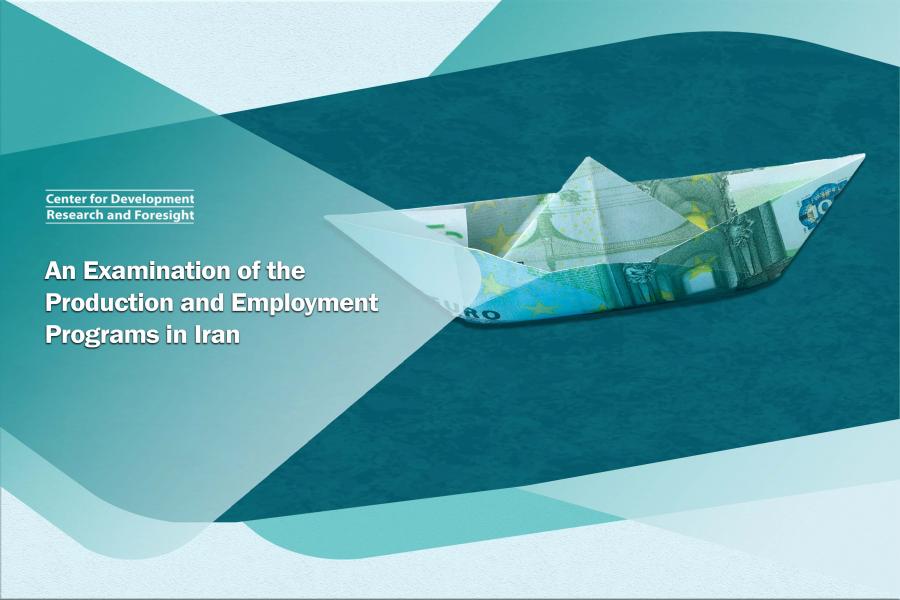
An Examination of the Production and Employment Programs in Iran
Commencing in 2016, the Iranian annual budget legislation has consistently highlighted employment support, production and employment, as articulated in Article 18. A comprehensive examination has been undertaken on the way that Article 18 has been performed within this specified duration. The examination disclosed the existence of certain deficiencies in planning.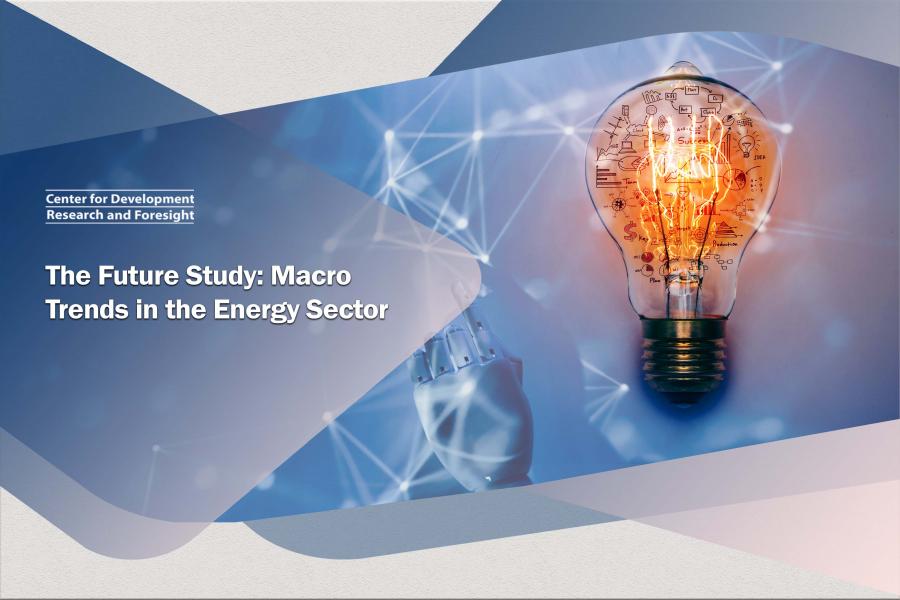
The Future Study: Macro Trends in the Energy Sector
This research delves into the energy trade landscape in global markets, with a particular focus on Iran's position within this dynamic arena. Drawing upon future studies and market analyses, the study examines the projected conditions of the global energy market, evaluating and analyzing key variables such as alternative energy sources to crude oil and natural gas, oil and gas production trends, and price fluctuations of crude oil and natural gas.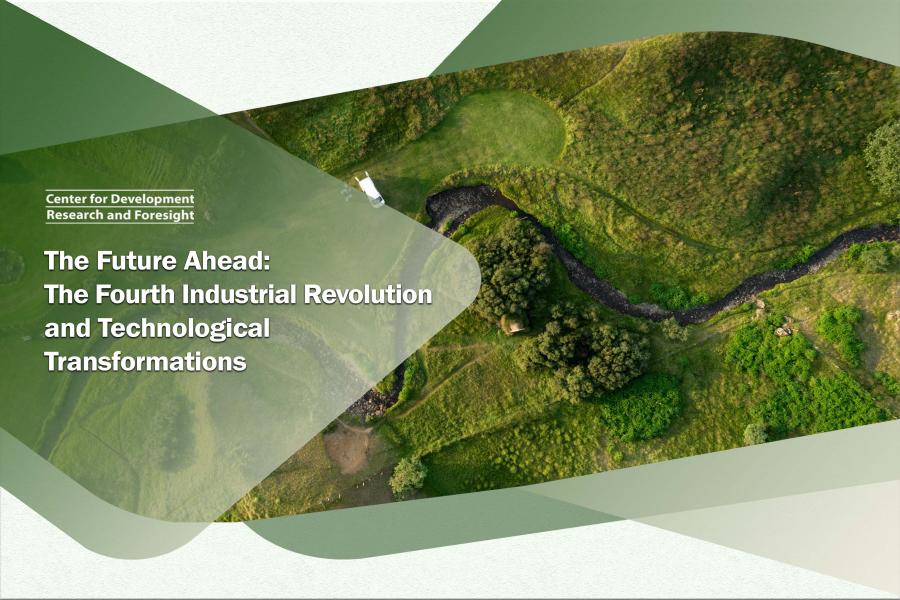
The Future Ahead: The Fourth Industrial Revolution and Technological Transformations
The main objective of this research is to examine and analyze the overall strategic direction of technological developments and to provide an overview of the Fourth Industrial Revolution and the effects of technological developments in selected areas.
Promoting Smart Growth: A Strategic Approach to Nurturing Innovation and Entrepreneurship in Iran
Economic growth is a fundamental driver of national prosperity, leading to improvements in per capita income, living standards, and national strength. Iran's development plans, such as the twenty-year vision and the sixth development plan, underscore the importance of achieving high and sustainable economic growth. To realize this goal, it is essential to carefully evaluate the factors influencing economic growth and formulate appropriate policies to address them.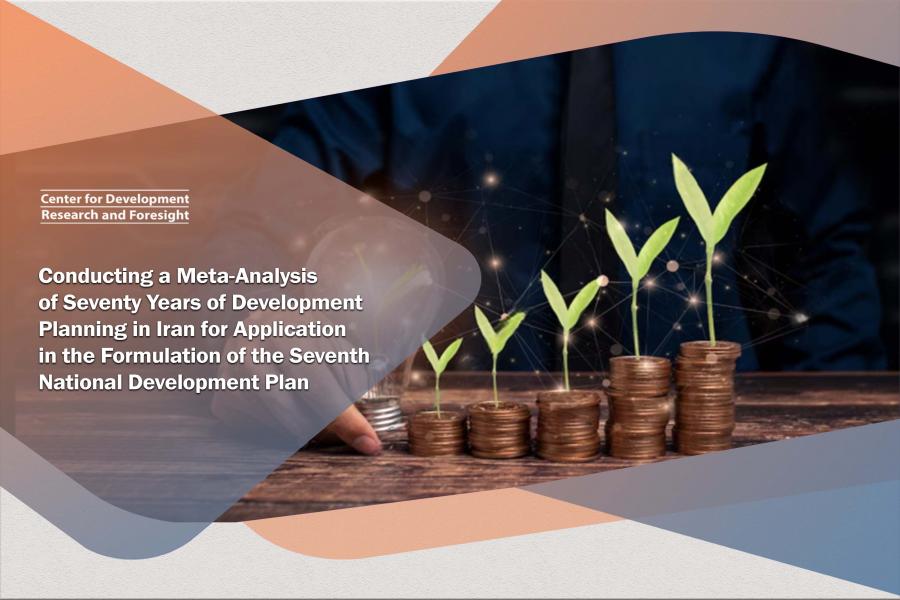
Conducting a Meta-Analysis of Seventy Years of Development Planning in Iran for Application in the Formulation of the Seventh National Development Plan
The development plan in Iran has been shaped by the evolution of the plan itself, following an established planning procedure. A crucial factor for successful planning is the establishment of a shared understanding and consensus on regulations, which serve as a blueprint for the content and structure of the plan among policymakers and planners. Given the importance of this issue, and recognizing that the formulation of regulations will be a pivotal step in advancing the seventh development plan, this study aims to delineate and clarify the regulatory elements of this plan.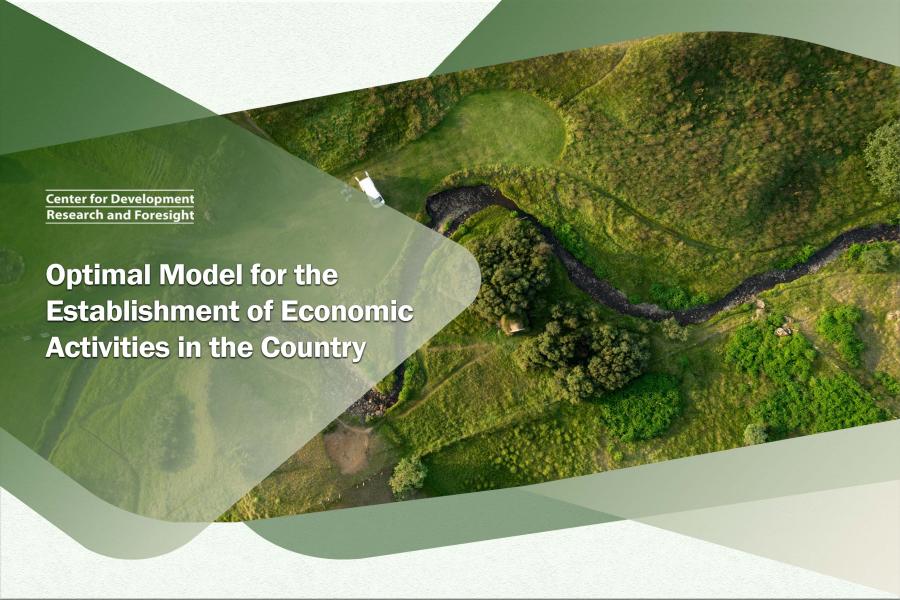
Optimal Model for the Establishment of Economic Activities in the Country
The various dimensions of economic, social, cultural, and environmental factors are essential for achieving sustainable development. Regional imbalances, inequalities, and significant challenges in the development process can arise from focusing only on economic growth in specific regions within a country. Hence, the distribution of economic activities across a territory should consider not only efficiency and economic advantage in different regions, but also other considerations and fundamental principles of spatial development. This study has developed a conceptual framework for determining the distribution of economic activities across a territory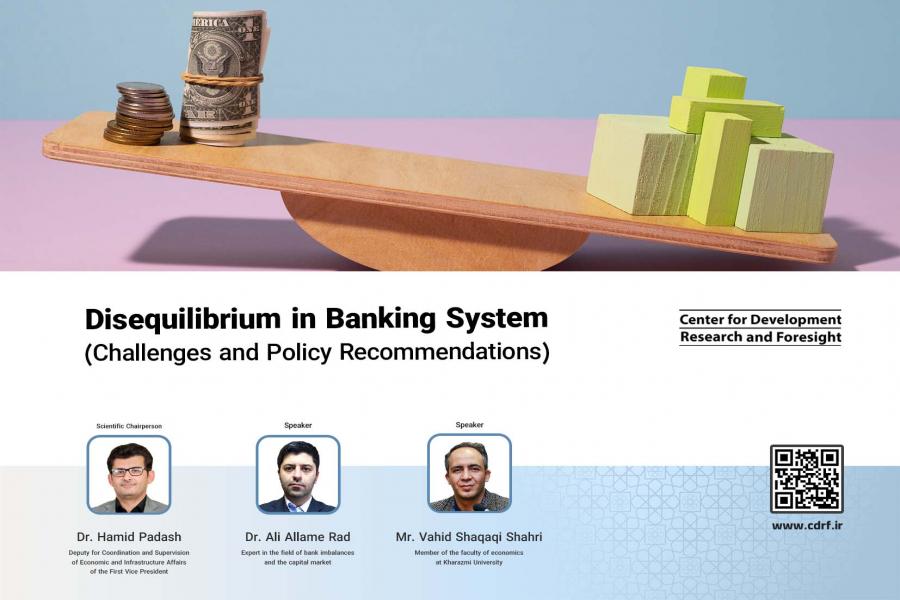
Disequilibrium in Banking System: Challenges and Policy Recommendations
The banking sector's disequilibrium has emerged as a pervasive and enduring challenge within the nation's macroeconomic framework. A series of strategic missteps have plagued the banking sector over the preceding four decades, including: the absence of unified Central Bank oversight from the late 1960s until 1994, despite formal recognition (substantive supervision remained deficient), the premature privatization of the banking industry without adequate national economic preparation, the imposition of government expenditures on private and non-governmental banks, particularly to offset a portion of the budget deficit, the perpetuation of a traditional view of money as a private commodity (a primary factor exacerbating domestic inflation), and vacillation between disparate economic schools, shifting from socialist to capitalist ideologies.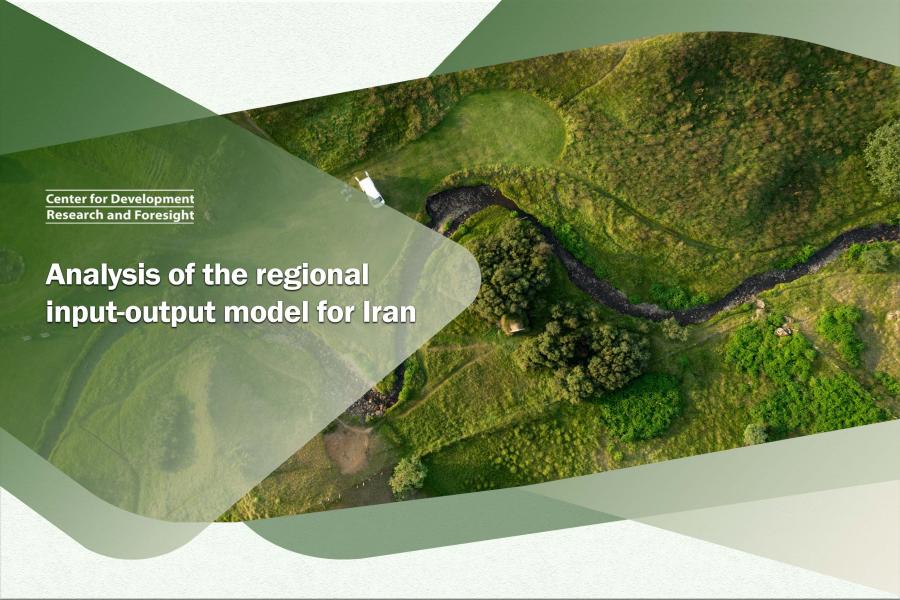
Analysis of the regional input-output model for Iran
In the contemporary global landscape, the evolution of planning systems has instigated a widespread transition towards decentralization and regional planning, predicated on the unique capabilities and advantages inherent to each region. This necessitates the execution of regional analyses employing a diverse array of methodologies. The input-output model has emerged as a prevalent method in regional planning. As one of the most sophisticated techniques in economic accounting, the regional input-output model elucidates the pattern of interaction among economic activities within or across various regions.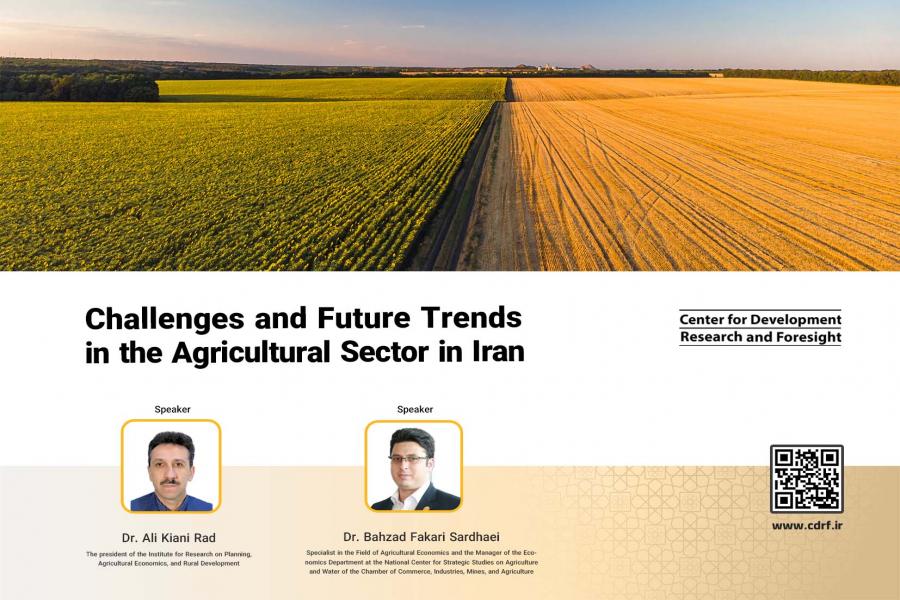
Challenges and Future Trends in the Agricultural Sector in Iran
Agriculture plays a critical role in Iran's economy, providing employment for over 15% of the workforce. While the sector holds immense potential for growth and development, it also faces significant challenges. Identifying these challenges and their impact on the agricultural system is essential for policymakers and stakeholders to formulate effective and targeted policies that address both current and potential issues, thereby enhancing the sector's resilience and enabling it to achieve sustainable development goals.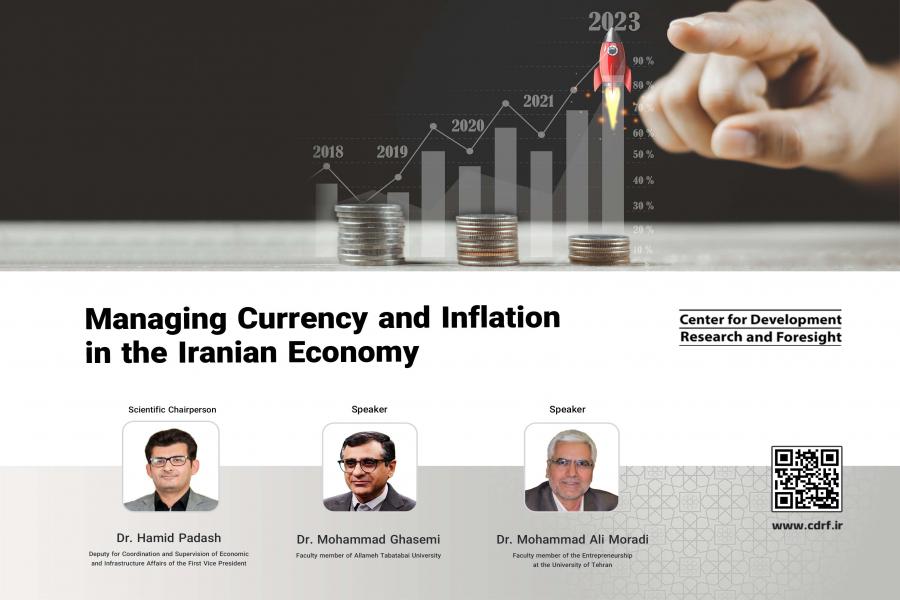
Exchange Rate and Inflation Policies in Iran's Economy
Inflation and exchange rate fluctuations have been persistent challenges in Iran's economy for several decades, leaving policymakers grappling with these issues. Double-digit inflation rates and currency shocks have become almost commonplace, characterizing the country's macro-economy for nearly half a century. However, in the past five years, these two issues have exacerbated Iran's economic situation, leading to unprecedented levels of inflation and exchange rates. Addressing inflation has become a priority in the country's policymaking, as reflected in the current year's slogan.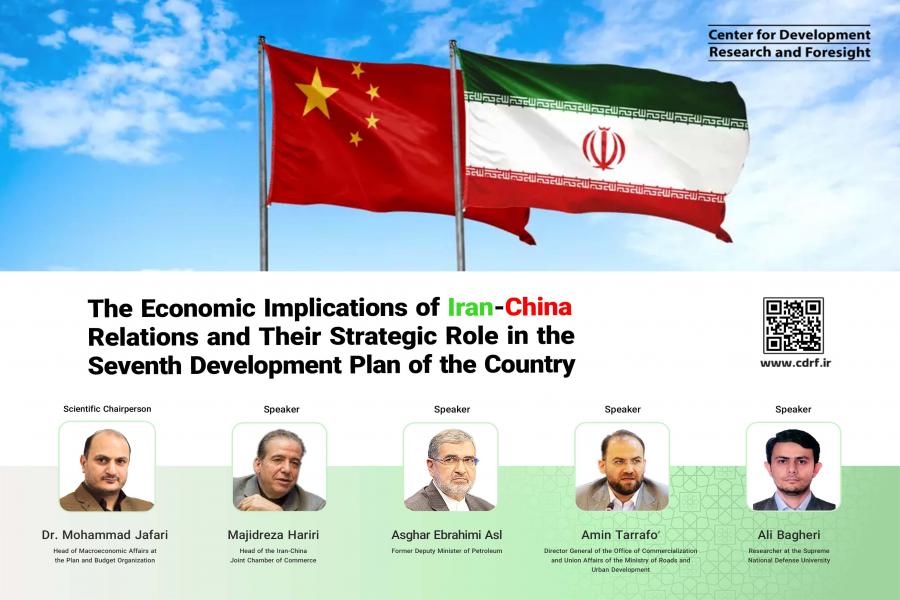
The Economic Implications of Iran-China Relations and Their Strategic Role in the Seventh Development Plan
The economic development and growth of a nation are intrinsically linked to the growth of its investments. As per the data from UNCTAD and domestic sources, it is observed that over the past two decades, the annual foreign investment in Iran has oscillated between 1 and 5 billion dollars. However, the potential for attracting foreign capital has seen a decline due to a myriad of internal and external risks coupled with investment barriers. To achieve the development objectives, an investment exceeding 200 billion dollars is necessitated, out of which a minimum of 100 billion dollars must be procured from external sources.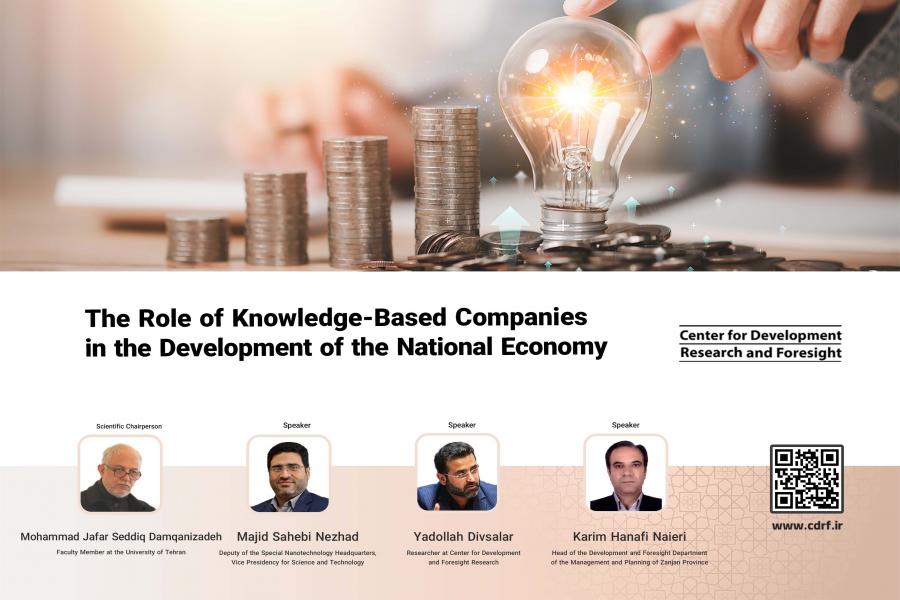
The Role of Knowledge-Based Companies in the Development of the National Economy
The conference titled “The Role of Knowledge-Based Companies in the Development of the National Economy” was held at the Center for Development Research and Foresight to discuss the role of knowledge-based companies in the country's development. The speakers at the conference emphasized the importance of knowledge-based companies for Iran's economic future, due to factors such as sanctions, the country's economic structure, and its geographical location.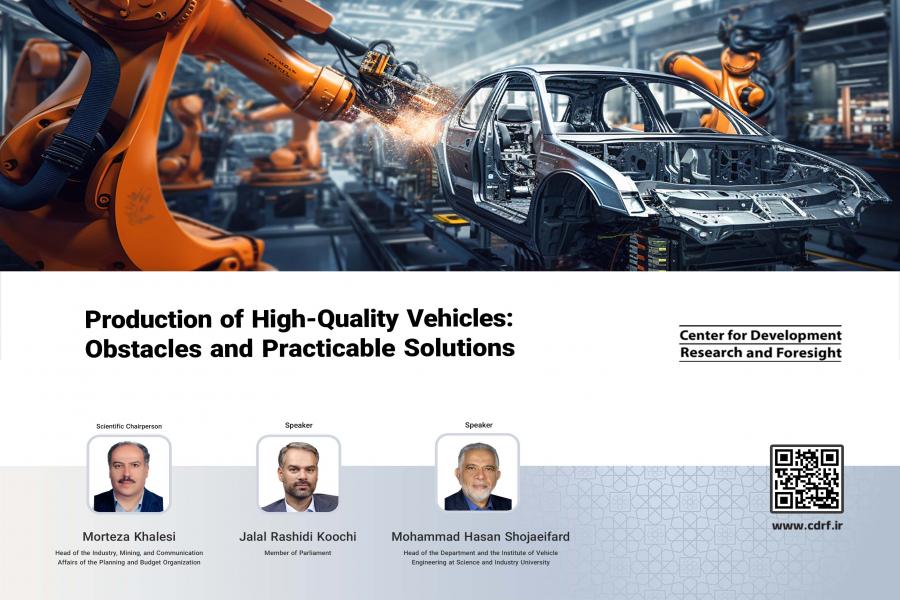
High-Quality Automative Production: Obstacles and Practicable Solutions
In the conference at the Center for Development Research and Foresight it is declared that while Iran's auto industry is roaring back to life, its path to success is far from smooth. With a mix of challenges and opportunities, the country's carmakers are navigating a complex landscape of sanctions, government control, and a growing demand for mobility.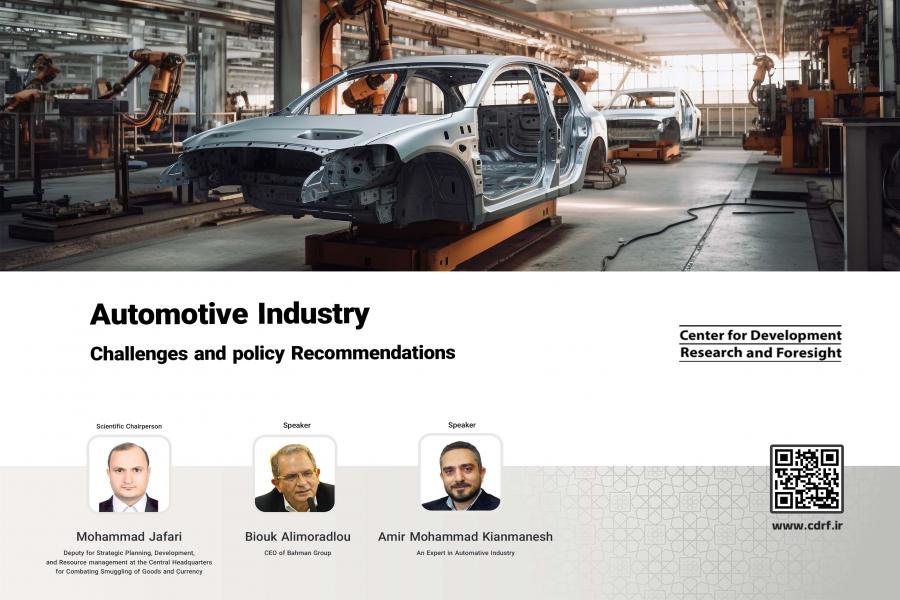
Automotive Industry: Challenges and Policy Recommendations
The recent conference at the Center for Development Research and Foresight, titled "Automotive Industry: Challenges and Policy Recommendations," was held with the participation of notable figures. These included Mohammad Jafari, Deputy for Strategic Planning, Development, and Resource Management of the Central Headquarters for Combating Smuggling of Goods and Currency; Biouk Alimoradlou, CEO of Bahman Group; and Amir Mohammad Kian Manesh, an expert in the automotive industry.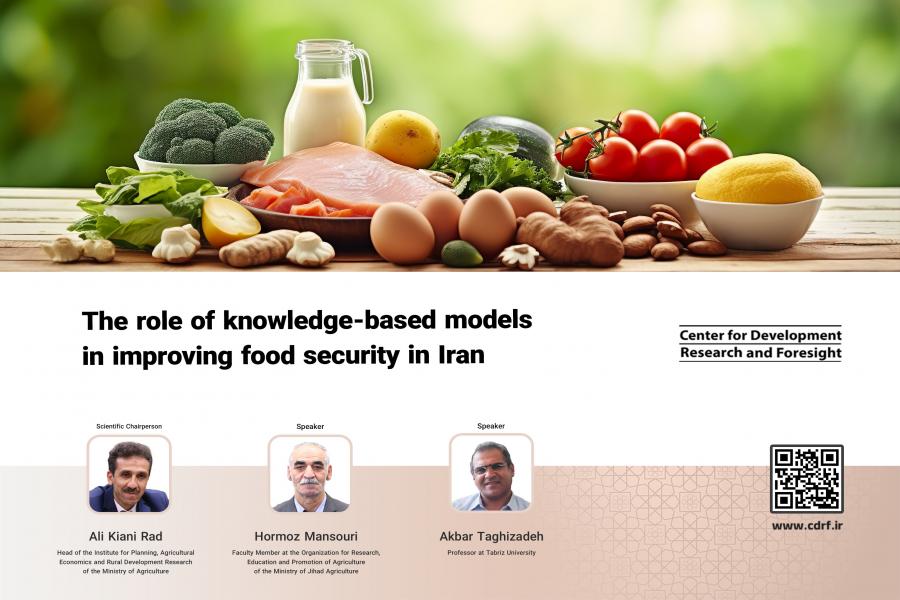
The Role of Knowledge-Based Models in Improving Food Security in Iran
The conference titled “The Role of Knowledge-Based Models in Improving Food Security in Iran” at the Center for Development Research and Foresight brought together experts to discuss the critical issue of food security in the country. The conference highlighted the challenges facing Iran's agricultural sector and explored potential solutions.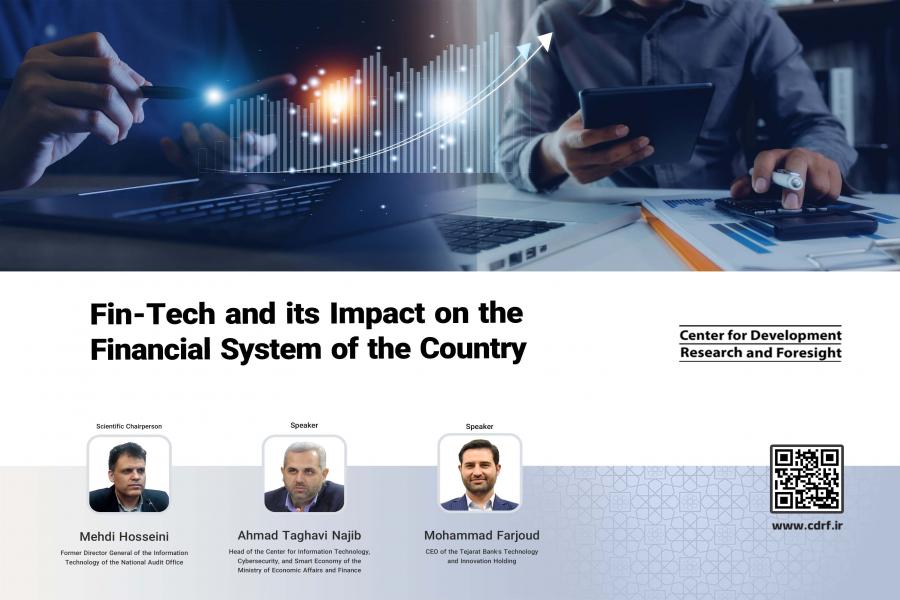
The Role of Financial Technologies in the Country’s Economic System: Challenges and Policy Recommendations
The scientific-specialized conference, titled "The Role of Financial Technologies in the Country's Economic System: Challenges and Policy Recommendations" at the Center for Development Research and Foresight brought together experts from various fields to discuss the potential and pitfalls of FinTech in Iran's developing economy.
Extraterrestrial Cultivation: Water and Food Security
In a move that could revolutionize its agricultural sector, Iran is setting its sights on extraterrestrial cultivation, aiming to tap into the water and soil resources of other countries to improve food security and expand its agricultural exports. This ambitious plan was discussed at the conference titled “Extraterrestrial Cultivation: Water and Food Security” at the Center for Development Research and Foresight.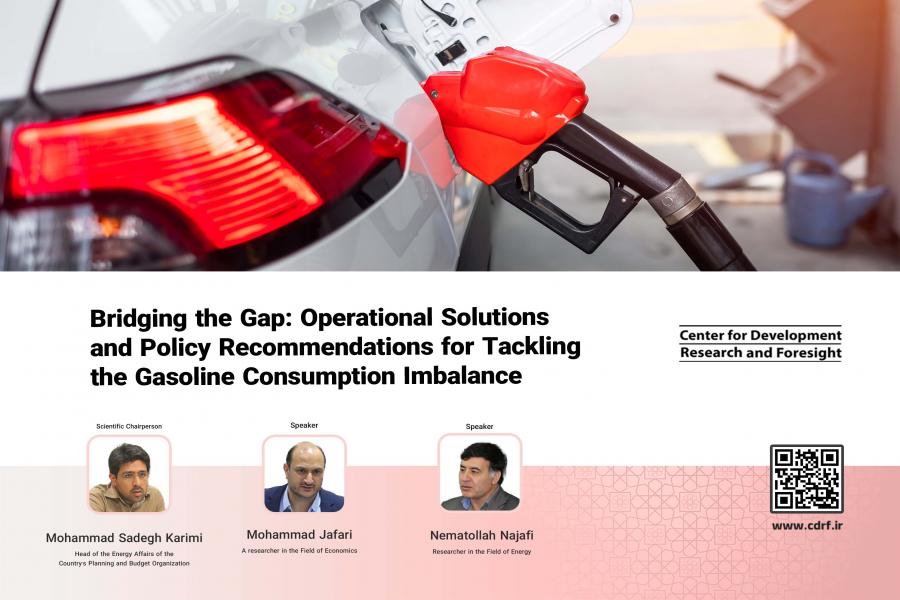
Bridging the Gap: Operational Solutions and Policy Recommendations for Tackling the Gasoline Consumption Imbalance
Iran is facing a growing problem at the pump. The country is burning through gasoline at an alarming rate, and experts are calling for action. In the recent conference titled “Bridging the Gap: Operational Solutions and Policy Recommendations for Tackling the Gasoline Consumption Imbalance” at the Center for Development Research and Foresight, key figures from government and academia discussed a range of solutions to bridge the gap between Iran's fuel consumption and supply.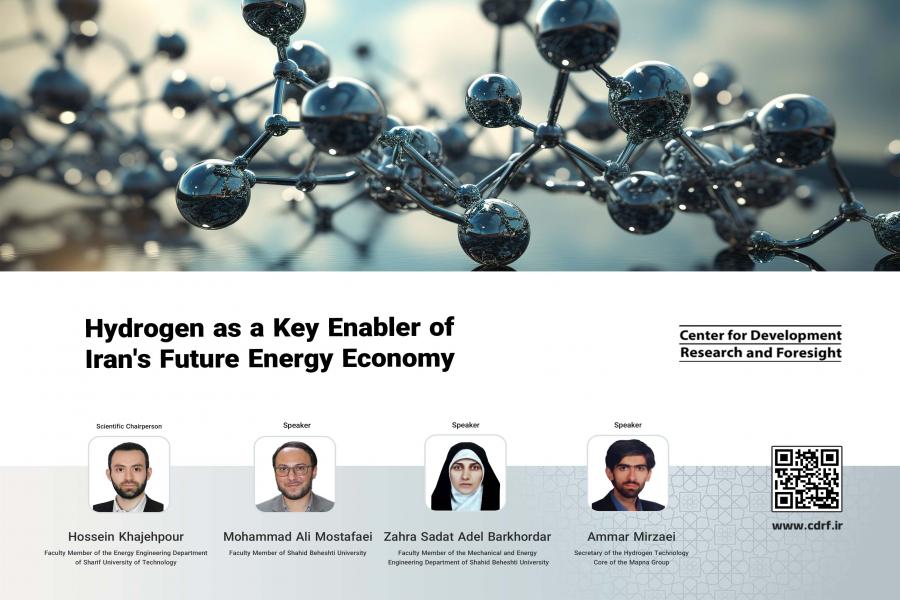
Hydrogen as a Key Enabler of Iran's Future Energy Economy
Could hydrogen be the key to unlocking Iran's clean energy future? That's the question experts tackled at the recent conference titled “Hydrogen as a Key Enabler of Iran's Future Energy Economy” hosted by the Center for Development Research and Foresight (CDRF).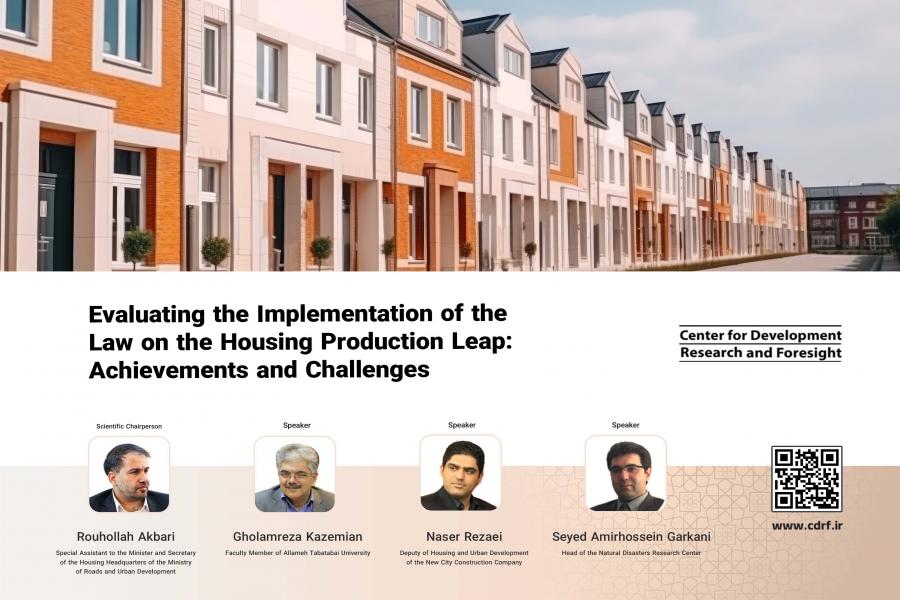
Evaluating the Implementation of the Law on the Housing Production Leap: Achievements and Challenges
In a recent conference titled "Evaluating the Implementation of the Law on the Housing Production Leap: Achievements and Challenges" hosted by the Center for Development Research and Foresight (CDRF) it has been an enlightening debate surrounding the effectiveness of the Law on Housing Production Leap.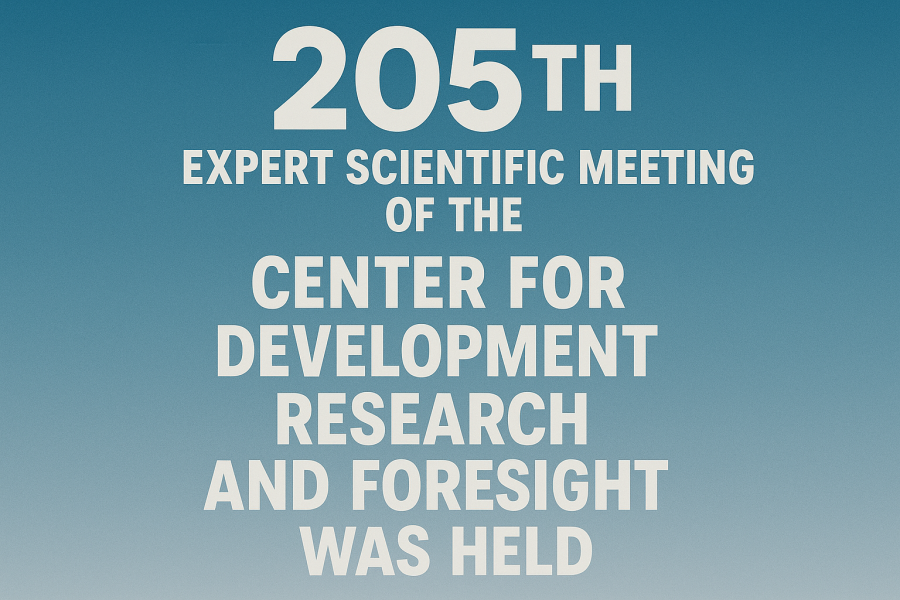
The 205th Expert Scientific Meeting of the Center for Development Research and Foresight (CDRF) was held
According to the Public Relations Office of the CDRF, the 205th Expert Scientific Meeting of the CDRF was held under the title 'Requirements and Challenges of Using the Public-Private Partnership Approach in Investment for Production'.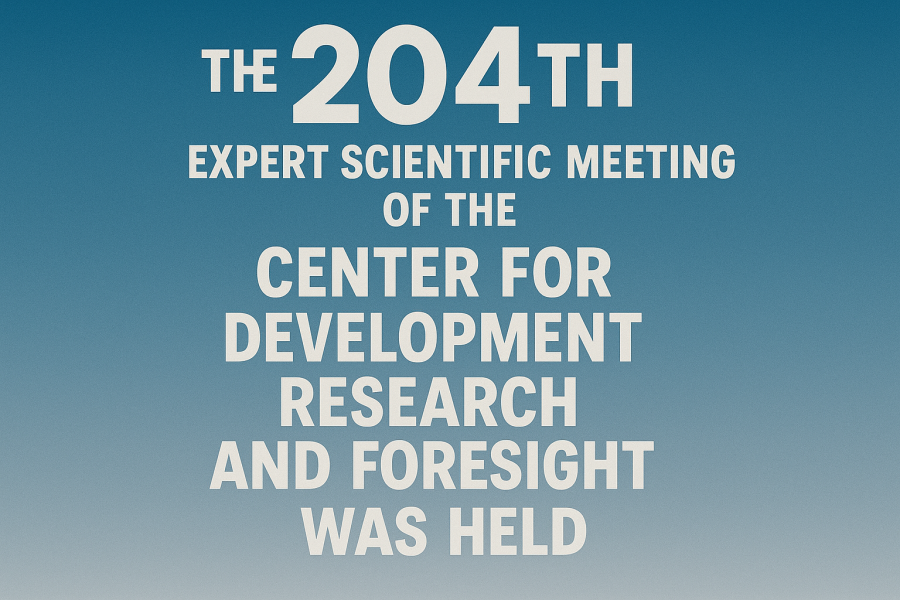
The 204th Expert Scientific Meeting of the Center for Development Research and Foresight (CDRF) was held.
According to the Public Relations Office of the CDRF, the 204th Expert Scientific Meeting of the CDRF was held on Tuesday, April 15, 2025, under the title 'The Government's Orientation in Fulfilling the 1404 Slogan (Investment for Production).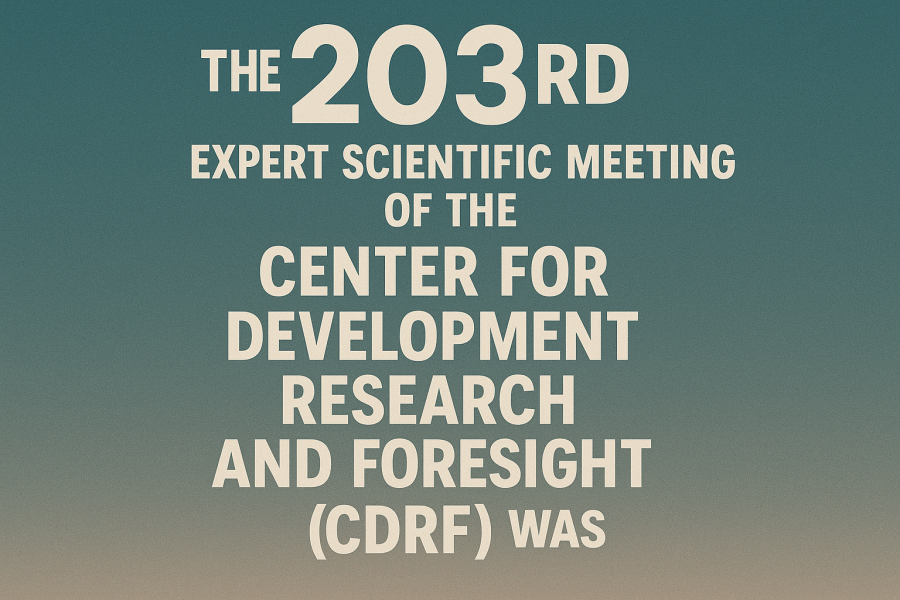
The 203rd Expert Scientific Meeting of the Center for Development Research and Foresight (CDRF) was held.
According to the Public Relations Office of the CDRF, the 203rd expert scientific meeting of the CDRF was held under the title “Analysis and Review of the Budget of State-Owned Enterprises in 1404 (2025-2026).” In this meeting, Mehdi Bagheri, former Head of State-Owned Enterprises, the Civil Servants Pension Fund (CSPF), and Public Institutions Affairs of the Plan and Budget Organization of the Islamic Republic of Iran (PBO), served as the scientific chair of the meeting. Additionally, Hassan Khoshpour, former Head of State-Owned Enterprises Affairs of the PBO, and Mohammad Nasir Arab Nosratabadi, Head of the State-Owned Enterprises and Non-Governmental Public Institutions Group of the PBO, participated as the keynote speakers, presenting their viewpoints.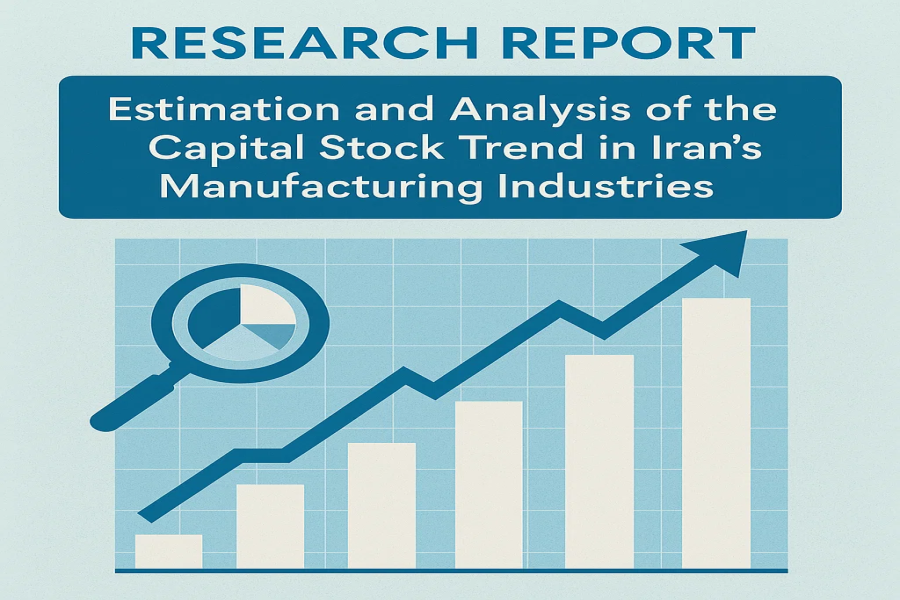
Research report on Estimation and Analysis of the Capital Stock Trend in Iran’s Manufacturing Industries
According to the Public Relations Office of the Center, the Research Group on Modern Systems of Planning, Budgeting, and Modeling at the Center for Development Studies and Foresight has published the research report titled: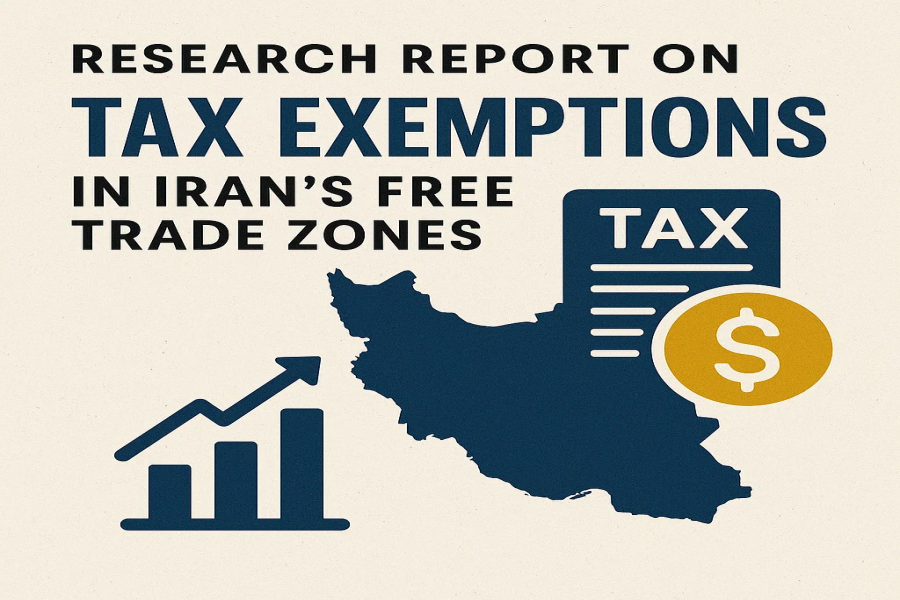
Research Report on Tax Exemptions in Iran’s Free Trade Zones
According to the Center’s Public Relations Office, the research report “Tax Exemptions in Iran’s Free Trade Zones” has been published by the Research Group for New Systems of Planning, Budgeting, and Modeling at the Center for Development and Foresight Research. A section of the executive summary of this report states:.png)
The 198th Expert Scientific Meeting of the Center for Development Research and Foresight (CDRF) was held.
According to the Public Relations Office of the CDRF, the eighth session of the “Future Vision of the Islamic Republic of Iran” series and the 198th meeting of the CDRF was held under the title “Oil in Iran’s Vision.” In this meeting, Ali Agha-Mohammadi, Head of the Economic Group of the Office of the Supreme Leader and non-ex officio member of the Expediency Discernment Council of the System, served as the scientific chair of the meeting. Additionally, Asghar Ebrahimi Asl, former Deputy Minister of Oil during the ninth, tenth, and eleventh administrations, and Mohammad Reza Akbari, faculty member at the Petroleum Faculty of Amirkabir University of Technology and Head of the Governance Working Group for General Energy Policies of the Expediency Discernment Council of the System, participated as keynote speakers, presenting their viewpoints.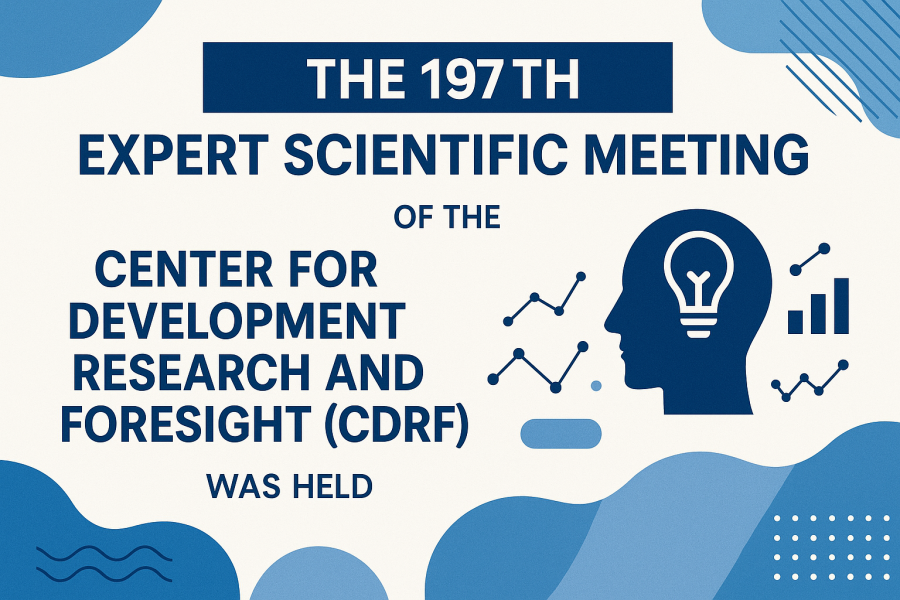
The 197th Expert Scientific Meeting of the Center for Development Research and Foresight (CDRF) was held.
According to the Public Relations Office of the CDRF, the seventh session in the series of meetings titled “The Future Vision of the Islamic Republic of Iran” and the 197th meeting of the CDRF was held under the title “The Role of Technology Development in Iran's Civil Vision.”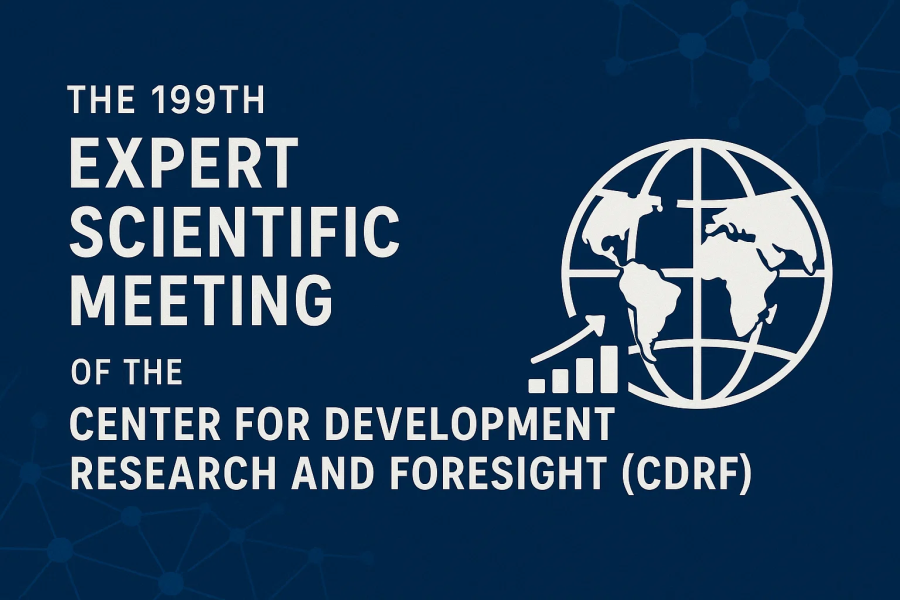
The 199th Expert Scientific Meeting of the Center for Development Research and Foresight (CDRF) was held.
According to the Public Relations Office of the CDRF, the ninth session of the series entitled “The Future Outlook of Iran” and the 199th expert scientific meeting of the CDRF was held under the title “Agriculture in the Vision of the Islamic Republic of Iran.”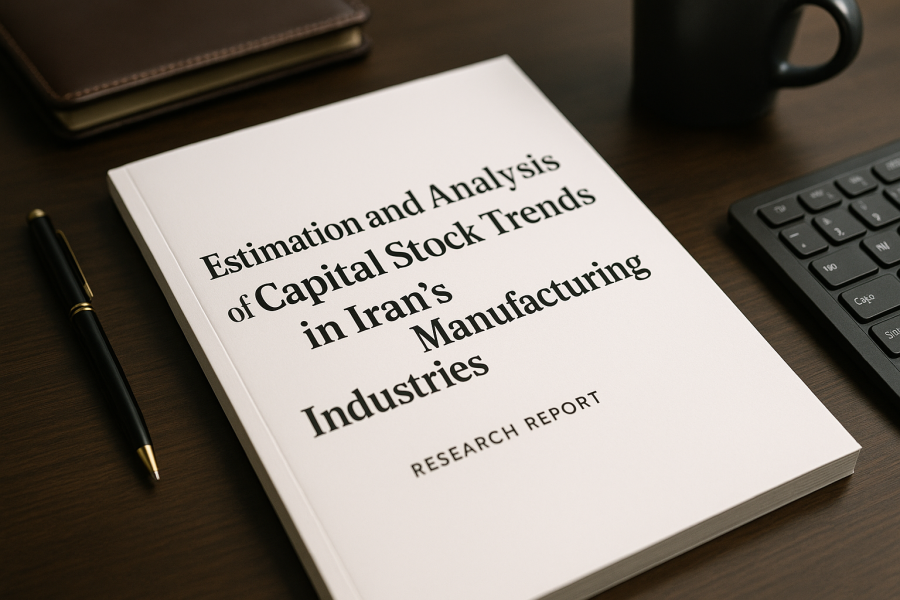
The research report titled “Estimation and Analysis of Capital Stock Trends in Iran’s Manufacturing Industries” was published.
According to the Public Relations Office of the Center for Development Research and Foresight (CDRF), the Research Group on Modern Planning, Budgeting, and Modeling Systems of the CDRF has published a research report entitled “Estimation and Analysis of Capital Stock Trends in Iran’s Manufacturing Industries.” A part of the introduction to this research report states: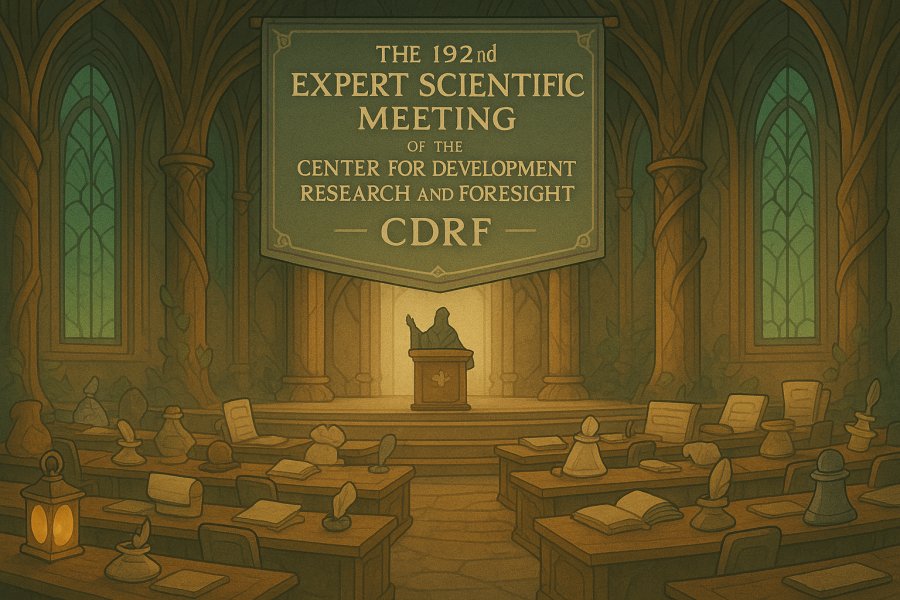
The 192nd Expert Scientific Meeting of the Center for Development Research and Foresight (CDRF) was held.
According to the Public Relations Office of the CDRF, the 192nd Expert Scientific Meeting of the CDRF was held under the title "Wildfires in the Zagros Forests: Challenges and Policy Recommendations." In this meeting, Farrokh Masjedi, Special Representative of the Head of the Plan and Budget Organization of the Islamic Republic of Iran (PBO) for the Preservation and Restoration of the Zagros Forests, served as the scientific chair of the meeting. Additionally, Mehrdad Akbarian, Representative of the Natural Resources and Watershed Management Organization, and Reza Siah Mansour, a faculty member at the Agricultural and Natural Resources Research and Education Center of Lorestan Province, participated as keynote speakers, presenting their viewpoints.
امروز : سه شنبه، ۱۴ بهمن ۱۴۰۴

